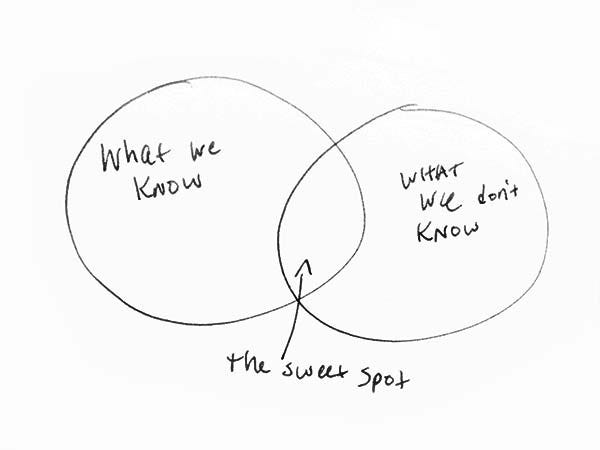http://www.usatoday.com/story/sports/mlb/cardinals/2013/09/10/st-louis-cardinals-matt-carpenter-david-frees-allen-craig-homegrown-talken/2795691/
ST. LOUIS -- It's Matt Carpenter's turn.
The St. Louis
Cardinals second baseman is an All-Star, a legitimate MVP candidate, the
National League leader in runs, hits and doubles.
He wasn't even
sure he was a second baseman until May. Now, he's another homegrown hero
coming along at just the right time to help maintain the Cardinals'
status as World Series contenders.
After all, it's the Cardinals Way.
One
of baseball's most storied franchises is now a consistent juggernaut —
on pace for its fourth playoff berth in five seasons — thanks to what
can best be described as organizational mastery:
Identify and
draft talented and versatile players. Teach them a wide variety of
skills. Impart consistent franchise philosophies across all affiliates.
And watch previously unheralded players flourish at the major league
level.
It's a recurring theme: Third baseman David Freese and
outfielder-first baseman Allen Craig became unlikely stars for an
unlikely 2011 World Series winner, before Craig became the guy who has
replaced and outhit Albert Pujols over the last two seasons and become a
cornerstone of manager Mike Matheny's roster.
More recently, in
the heat of a difficult National League Central race, 25-year-old Matt
Adams, a 2009 23rd-round draft pick, has stepped up, hitting two
extra-inning home runs to win a crucial game at the Cincinnati Reds.
Adams is filling in for injured Craig, who two years ago was just like
Adams: an unheralded product of the St. Louis farm system looking to
prove he could play in the major leagues.
It's what the Cardinals do.
"The
path that I've taken to get here — and Allen (took) — it's not your
typical way," says Carpenter, a 13th-round draft pick who played five
positions last season but earned his way into a regular role this season
(he's still played three other positions) and found himself alongside
Craig at the All-Star Game. "To see it pay off is pretty rewarding."
It is not your typical way, but it's the Cardinals Way.
They're often names familiar only to ultra-loyal St. Louis fans or your neighborhood fantasy geek.
But there always seems to be another one coming from a farm system that has become one of the game's most prolific.
"Next
man up, the next guy is going to get it done," Matheny said Sunday
after the sweep of the previously division-leading Pittsburgh Pirates
was finished off by pitcher Michael Wacha, a 22-year-old making his
sixth major league start.
"Expectations are high," general manager John Mozeliak says. "They embrace it."
And that's something of a learned trait in the Cardinals organization.
***
Philosophy's Roots are deep
That
"next man up" philosophy goes back a half-century or so in an
organization in which a coaching and development lifer named George
Kissell — considered the godfather of how the Cards develop players —
became as legendary as Hall of Famers such as Stan Musial and Red
Schoendienst.
It stretches into the future in places such as Johnson City, Tenn., and Peoria, Ill., two of the Cardinals' Class A outposts.
"It
seems like we're doing something magical," says former big-league
catcher Dann Bilardello, in his first year managing the Class A team in
Peoria and in his seventh season in the organization.
"In reality, we keep a consistent staff, and we consistently teach the right things."
They
talk about the Cardinals Way in almost reverential tones. In seeking to
explain it, players offer varying interpretations of the same theme.
"They
preach how to get better but win at the same time," says pitcher Lance
Lynn, who is a 31-17 since joining the St. Louis rotation last season.
"The
Cardinal Way is simply being held accountable for your actions,"
Carpenter says. "It's integrity, playing hard, working hard, doing all
the little things right."
Says Adams, "We're here to win a championship, and if you're not like that, you're just out there playing."
Adams
figures he wouldn't be in the majors without the hours coaches spent
working with him on defensive footwork or the in-season and offseason
improvement plans he was given.
The teaching that Bilardello talks
about is a difference-maker. It has to be, considering the success of
players who, as Mozeliak says, "weren't necessarily high-profile, cover
of Baseball America guys."
Yet the Cardinals turn them into household names.
"When
Matt Carpenter first got here, would you have said he's going to be an
All-Star? Allen Craig: What position? What's he going to do?" Bilardello
asks.
"There's a lot of credit with scouting and everything else.
But it's the players. They're the people who make our decisions hard or
easy and, they make our decisions to say, 'Man, he deserves a shot.'"
Says
Craig, who played every infield position as well as left and right
field in the minors as the Cardinals sought a home for his offensive
skills, "Every step of the way, I think I've had a coach who told me
something that stuck."
***
Perfecting skills is focus
If
you're looking for a secret formula, don't bother breaking into the
Cardinals offices. They're what has become a fairly typical mix of
traditional scouting and development people plus a healthy dose of
statistical analysis.
"From an organizational philosophy, we
embrace our past, we focus on today but have an eye for the future,"
says Mozeliak, who has been general manager since October 2007 and
arguably holds the strongest sway over baseball operations since Whitey
Herzog was building championship teams in the 1980s.
"The
character theme gets a lot of play in this organization. We're certainly
grateful for that reputation. But how we get there is not like a secret
recipe. It comes down to strong scouts who understand what they're
looking for and what will fit into our model. Then, once (players) get
here, what the expectations are from our uniform staff."
What are they looking for?
"We look at what skills they have," Mozeliak says.
But they also try to perfect those skills.
Charlie
Tilson is a 20-year-old outfielder the Cardinals took out of high
school in the second round of the 2011 draft. Growing up in suburban
Chicago, he didn't have the game repetition of some highly regarded Sun
Belt kids.
In his first pro offseason, he was invited to St. Louis to work with veteran outfielder Matt Holliday.
"It
was me, Ryan Jackson, Matt Adams and Kolten Wong (all fellow farmhands
and now current Cardinals), and he took us through everything he does
and how he prepares," Tilson says.
Tilson was sent to Peoria this year to get regular at-bats, and he hit .303.
"Obviously, I knew I belong," Tilson says.
Says Mozeliak, "Think of it as raw materials. When you're thinking about how to build something, he had a nice set of tools."
That's why, Mozeliak says, "we try to wear the more innovative hat."
Translation:
Your position in the minors won't necessarily be your position in the
majors. It's also why the Cardinals have tried to get one of Tilson's
teammates, speedy outfielder C.J. McElroy (son of former major league
pitcher Chuck McElroy) to bat left-handed in order to be a bigger threat
as a leadoff man.
***
Model in action
That innovation carries over to the major league level.
Sure,
they have their blue-chippers. Wacha was a 2012 first-rounder on the
fast track; he also is one of 12 25-and-under pitchers the Cardinals
have used this season.
Of the 12 offensive players with the most
at-bats for St. Louis this year, all but Holliday and fellow outfielder
Carlos Beltran are graduates of the farm system. Of the homegrown 10,
only Freese and catcher Yadier Molina have turned 30.
No wonder
Houston Astros general manager Jeff Luhnow, whose previous job was
overseeing the Cardinals system, says of his franchise's rebuilding
effort, "There are pieces of the Cardinals Way all over. We're bringing
those to Houston."
And the Cardinals keep bringing theirs to St. Louis.
Wong is a 2011 first-rounder who made his debut last month.
"As
soon as I got drafted, that day at Busch Stadium, I took BP," Wong
says. "They told me to take some ground balls, and instantly (longtime
coach) Jose Oquendo found something I could have done differently. Then
turning double plays, he said, 'You can't do it that way, you do it this
way.' From Day 1, it was a learning experience for me daily."
Back
in Peoria, Bilardello has yet another player to "exploit that value,"
as he puts it: Breyvic Valera, 21, who calls himself a second baseman.
Maybe so, but he also played shortstop, third base, left field and right
field for Peoria this year.
Such multitasking is often a last
resort for a player with deficiencies. But switch-hitting Valera is a
legitimate prospect. He hit .309 for Peoria while showing up every day
not knowing where he would play.
That versatility is what got
Carpenter and Craig to the big leagues. And it's part of the message the
Cardinals want to get across.
"They see there's a chance,"
Mozeliak says. "They see how many homegrown players we have in the big
leagues. The level of optimism in a minor league clubhouse is high."
That tenor carries right through the system.
"You
don't want to have that asterisk next to your name. 'Oh, this guy
doesn't want to work hard,'" Adams says. "You want to get it so you're
not that different person in the Cardinals system."
And it's all
part of why the Cardinals think their young players have been so
successful, especially in 2011. Freese was MVP of the NL Championship
Series and the World Series; Craig hit three homers in their seven-game
conquest of the Texas Rangers.
"When you have the kind of October
they had in '11, there's a lot of growing up going on," Mozeliak says.
"But I would also say that group was competitive throughout their
careers. Nobody seemed (fearful) because they'd played enough playoff
games. The stage was different, but they look like they embraced it."
They continue to embrace it, to expect success.
"It
helps when people look at what guys do well, not at what they don't do
well," Craig says. "That's part of the development we've had."
And a large part of the Cardinals Way.
"Nothing is done without a lot of things (going) right for us," Mozeliak says. "I assure you, it's not easy.
"I take a lot of pride in this."



